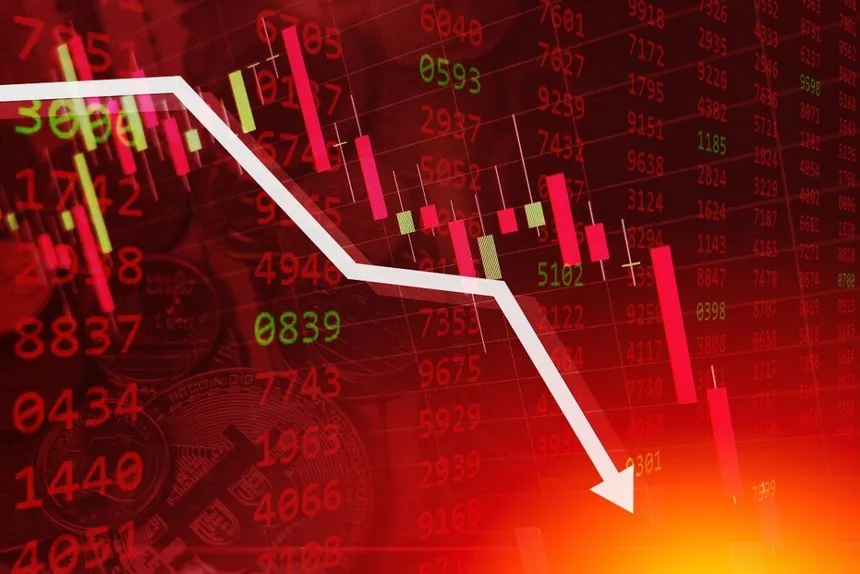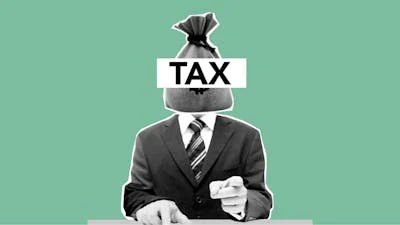The Secret World of Dabba Trading: 7 Things You Didn’t Know
What is Dabba Trading?
Dabba trading is an informal and illegal practice where traders bet on stock price movements without actually buying or selling the stocks through a formal exchange. In this setup, transactions occur outside the regulated stock exchanges, creating a gambling-like environment around stock prices.
Example: An investor might place a bet on a stock priced at ₹500. If the stock price rises to ₹700, the investor gains ₹200. Conversely, if the stock price drops to ₹400, the investor loses ₹100, which is paid to the dabba broker.
Essentially, the broker’s profit equals the investor’s loss, and vice versa. This makes dabba trading particularly risky during periods of significant market fluctuations, such as bull runs or bear markets. Since it operates outside the law, dabba trading lacks any regulatory oversight, adding to its risks and making it an illegal form of trading.

DO YOU KNOW?
The discovery of a black stock market in India, trading an estimated 0.7 lakh crore rupees daily, is startling. This volume rivals the National Stock Exchange’s (NSE) daily trading of 1.02 lakh crore rupees, indicating that about 70,000 crore rupees in black transactions occur daily. This revelation underscores persistent challenges in eradicating the black economy, tied fundamentally to high taxes driving tax evasion and illegal activities despite government efforts to reduce rates and attract investments.
Why do investors get into dabba trading then?
The biggest lure of this practice is avoiding taxation. When you invest via legal stock exchanges, you pay certain fees and taxes like the Commodity Transaction Tax (CTT) or the Securities Transaction Tax (STT). All these taxes are evaded in dabba trading. Because the transactions happen in cash without any record, this practice can lead to the growth of black money that can be used for other criminal activities.
With the rise of dabba trading apps, some unsuspecting investors are also getting involved in such illegal trading practices.
What are the Punishments for Dabba Trading?

Dabba trading is recognized as an offence under Section 23(1) of the Securities Contracts (Regulation) Act (SCRA), 1956. In addition to violating securities laws, dabba trading also falls under Sections 406, 420, and 120-B of the Indian Penal Code, 1870.
The punishments for dabba trading are severe. Upon conviction, investors and traders can face imprisonment for a term extending up to 10 years, a fine up to ₹25 crore, or both.
Dabba Trading Risks
Participating in dabba trading poses significant risks for investors, including:
- Loss of Funds: Traders risk losing their investments due to price manipulation and fraudulent practices.
- Legal Consequences: Engaging in dabba trading can result in legal actions, penalties, and criminal charges, as it violates financial regulations in many jurisdictions.
- Lack of Recourse: Since dabba trading operates outside of official channels, investors have limited recourse in the event of disputes or losses.

What is Dabba trading Platform?
Dabba trading is an illegal and unregulated form of trading in securities. In dabba trading, traders place deals in securities without the trades actually being executed on any official SEBI recognized stock exchange.
Comparison Between Legal Trading and Dabba Trading: Key Differences–
| Aspect | Legal Trading | Dabba Trading |
|---|---|---|
| Legality | Conducted by registered stockbrokers under SEBI regulation. | Unregulated and illegal, conducted outside formal exchanges. |
| Transparency | Trades are recorded in official books and executed through recognized exchanges. | Opaque, executed through unofficial channels, not recorded officially. |
| Risks | Manageable and mitigatable risks | High risks, including fraud, due to lack of regulation. |
| Taxation | Subject to taxes and regulatory fees through recognized channels | Not subject to taxes and regulatory fees, potentially appealing to some investors. |
Impact of Dabba Trading on the Indian Taxation System

Dabba trading, an illegal practice in India, allows traders to evade taxes on their profits. Despite being required under the Income Tax Act of 1961, profits from off-market bets remain untaxed due to dabba trading’s unregulated status. This loophole facilitates tax evasion and raises concerns about money laundering, as profits go unreported to tax authorities.
The practice has long plagued India’s financial markets, contributing to price distortions, gambling, and market instability. Dabba trading operates in cash, sidestepping taxes like the Commodity Transaction Tax (CTT) and Securities Transaction Tax (STT). Classified as a serious offense under the Securities Contracts (Regulation) Act (SCRA), 1956, dabba trading carries penalties of up to ten years’ imprisonment or fines up to Rs. 25 crores, or both.
CONCLUSION
In summary, dabba trading represents a clandestine world of off-market bets on stock prices, conducted outside regulated exchanges. This illegal practice appeals to some investors due to its avoidance of taxes and regulatory fees, but it carries substantial risks, including potential loss of funds and severe legal consequences. Despite its allure, dabba trading undermines financial transparency and stability in India, contributing to concerns about market integrity and the proliferation of black money. Strict enforcement of existing laws and heightened awareness among investors are crucial to combating the detrimental impact of dabba trading on the Indian financial system.For more insights into effective investment strategies, visit our website underfroundfinanceinsight.com.
FREQUENTLY ASKED QUESTIONS
How can investors protect themselves from Dabba trading?
Investors can protect themselves by ensuring they deal with registered brokers, verifying that their trades are executed through recognized exchanges, and regularly reviewing their trade statements and contract notes.
What steps are regulators taking to combat Dabba trading?
Regulators are continually monitoring market activities, conducting inspections, and imposing strict penalties on offenders. They also run awareness campaigns to educate investors about the dangers of Dabba trading.
What are the consequences for brokers involved in Dabba trading?
Brokers found engaging in Dabba trading can face severe penalties, including hefty fines, suspension or cancellation of their licenses, and even imprisonment under various securities laws.
How can one identify Dabba trading?
Some indicators of Dabba trading include the absence of transaction reports from recognized exchanges, unusual delays in trade confirmations, and brokers encouraging clients to settle trades in cash.



